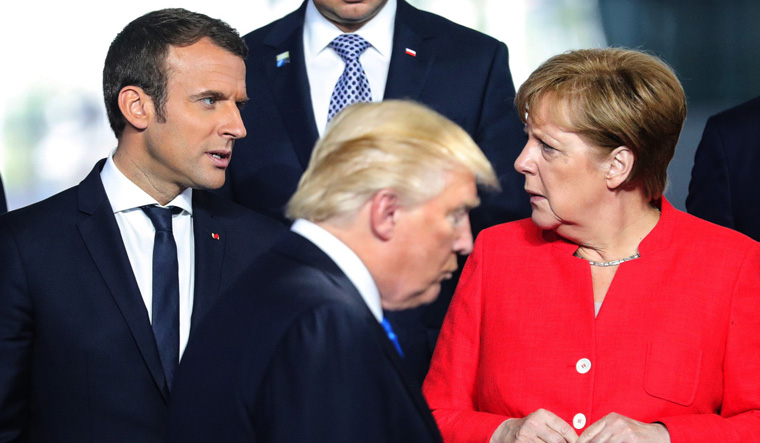On September 20, NATO Deputy Secretary-General Rose Gottemoeller welcomed the Alliance’s partnership with Ireland in a visit to Dublin. NATO chiefs of defence on September 17 discussed the alliance's strategy and how it can shape the future of the alliance. “Military chiefs of defence worked diligently to ensure the alliance is served in deterrence and defence both today and tomorrow,” Chairman of the Joint Chiefs of Staff Joe Dunford said.
US officials use the National Defense Strategy and National Military Strategy to ensure all decisions affecting the military today and in the future are strategy-driven. NATO chiefs are making sure, member-nations of the alliance can do the same.
As per experts, the future role of NATO would depend on relations of the member nations with adversaries like China, Russia. Currently, Russia is a competitor and NATO's advantage over Russia has eroded.
The meeting of all the defence chiefs, looked at two documents: a broad concept for NATO defence and deterrence, and a capstone concept for NATO operations. Ever since the Soviet Union was dissolved, the relevance of NATO has been discussed. Differences between member-nations have increased, especially since Donald Trump became president of the US.
"The program reflects all the work that we do. We use the National Defense Strategy and the National Military Strategy. [We] do experimentation, war games, and that drives the investments that we make,” Dunford said. The alliance's current strategy drives the posture of the forces that have been given to NATO by the various countries. According to Dunford, informs, rather than drives, the path of capability development of individual nations.
Unless Russia and NATO members, particularly the United States, are able to reach a point of cordial relations, the alliance's role might to crisis response from that of collective defence. Then again, it could be said that NATO always needs an enemy to survive as a collective. The chiefs also discussed upcoming operations in Afghanistan and the ongoing preparations for the Sept. 28 Afghan elections. The support provided NATO and partner nations are providing for the Afghan government as the elections draw closer.
Dunford further added that Secretary of State Michael R. Pompeo and Defense Secretary Dr Mark T. Esper were committed to transparency with NATO Secretary-General Jens Stoltenberg and their NATO counterparts as the US considers adjustments to the current strategy of the alliance.


